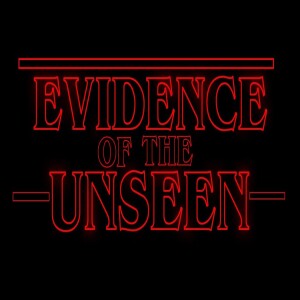
Monday Oct 30, 2017
Evidence of the Unseen
Evidence of the Unseen

This Bible teaching from Founded In Truth Fellowship, led by Matthew Vander Els, explores the profound concept of faith, drawing heavily from the book of Hebrews, particularly chapter 11. The teaching emphasizes that faith, as understood within a Christian context, is far more than a passive belief or a hopeful wish; it is a dynamic reality rooted in the person and work of Yeshua (Jesus), the promised Messiah and King.
The Gospel: Good News of the Kingdom
The session begins by defining the gospel not merely as religious doctrine but as the "good news" of God's kingdom being reestablished on earth through Yeshua. In the first century, the term "gospel" often had political connotations, announcing the reign of a new leader. Yeshua's gospel, however, proclaims the kingship of God, inviting people into a restored relationship with Him. The speaker highlights that the gospel writers readily identify Yeshua with the title of Christ (Christos in Greek, Mashiach in Hebrew), which signifies "The Anointed One," a term closely associated with kingship in the Old Testament. Thus, "Jesus Christ" should be understood as "King Jesus."
Restoration and the New Creation
Yeshua's mission focused on declaring the reality of God's reestablished kingdom. This aligns with the prophecies in Isaiah regarding a "new creation," a restoration of all things where the exile of humanity from God, caused by sin, will end through forgiveness. The separation between the "space of heaven" (God's reign) and earth, evident after the Garden of Eden, is being overcome. Yeshua's confrontation with evil, culminating in his death and resurrection, signifies a victory over sin and death, inviting believers to share in this victory and be raised to a renewed reality. This newness of life is central to the gospel.
Understanding Faith: Beyond Mental Assent
The teaching then delves into the meaning of "faith" (pistis in Greek), emphasizing its complexity and multifaceted nature in the Bible. While often equated with belief or trust, the speaker argues that biblical faith inherently involves action. To illustrate this, the speaker uses the analogy of a pole vaulter: the first ten chapters of Hebrews describe the excellency of Yeshua, building momentum, while chapter 11 is like the pole itself, hinging on and propelling believers forward in how they live.
Hebrews 11:1 provides a crucial definition: "Now faith is the substance of things hoped for, the evidence of things not seen." Examining the original Greek words, the speaker notes that "substance" (hypostasis) and "evidence" (elenchos) suggest a tangible reality and proof, rather than mere mental conviction. Conservative translations like the KJV and Holman Bible emphasize this by translating faith as the "substance and reality" and "evidence and proof" of what is hoped for and unseen. Therefore, faith is not simply "thinking really hard" or "blind belief" without reason.
Faith Founded on Reason and Evidence
The speaker contends that Christian faith is founded on good reasons and evidence, pointing to the eyewitness accounts of Yeshua's life, death, and resurrection recorded in the Bible. The resurrection serves as a powerful testament to the defeat of darkness, sin, and death. This is likened to a rooster crowing in the darkness, announcing the coming dawn even when unseen. Believers have this "rooster crowing" – the reality of Yeshua's victory – as the foundation of their faith.
Several examples from Hebrews 11 illustrate faith as an action rooted in considering God's faithfulness:
- Sarah conceived in old age because she "considered him faithful who had promised." Her faith stemmed from acknowledging God's trustworthiness based on past experiences.
- Abraham, when tested to offer Isaac, "considered that God was able even to raise him from the dead." His faith was based on his understanding of God's power and previous faithfulness.
- Abraham obeyed God's call to go to an unknown land because he considered God trustworthy. Believing faith involves acting on God's call, based on the assurance of His character.
These examples demonstrate that faith begins with reason, consideration, and logic, leading to choices and actions. It is not a "leap of faith" into the unknown without any basis.
Living by Faith in Everyday Life
Walking by faith means aligning one's life with the reality of the coming new creation and the victory of King Yeshua, even when it seems contrary to the current world. This involves:
- Forgiveness and reconciliation in broken relationships, reflecting the future world where pain and unforgiveness will not prevail.
- Maintaining covenant faithfulness in relationships, such as marriage, contrasting with the world's often casual view of sexuality.
- Choosing love and reconciliation over violence and retaliation, even towards enemies, mirroring Yeshua's example.
- Refraining from gossip and spreading negativity, embodying the unity and peace of the future kingdom.
- Making decisions based on trust in God's faithfulness, even when those decisions seem unconventional or risky by worldly standards.
Living by faith means being ambassadors of a future world, acting in accordance with its values now, in anticipation of its full establishment. Even amidst the struggles of the present corrupt world, believers are encouraged by the reality of Yeshua's victory and the promise of a new dawn. Walking in faith allows believers to experience the "substance" and "reality" of God's promises even now, serving as evidence for the unseen future.
To find more Bible Teachings, click the link.
References
Bible Verses
Books and Resources
- The Septuagint
- The Tanakh
- Books by Scott McKnight
- The Gospel (song) by Ryan Stephenson
Note: This article contains affiliate links.
No comments yet. Be the first to say something!